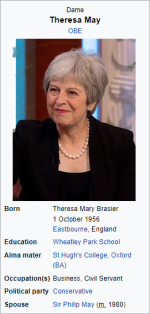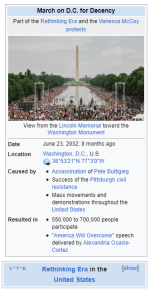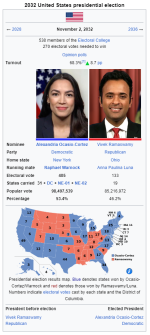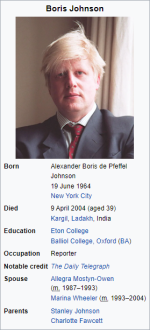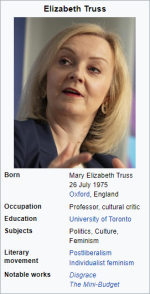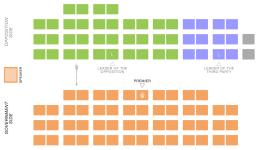- Location
- Toronto, ON, CA
Edward Heath
Harold Wilson
James Callaghan
Margaret Thatcher
John Major
Tony Blair
Gordon Brown
David Cameron
Theresa May OBE is a businesswoman and civil servant.
The daughter of a vicar who studied geography at Oxford, May initially worked as a consultant for the Bank of England. She became a senior advisor to the organization on international affairs, helping to co-ordinate the restructuring of the organisation following the UK's entry into the DucatZone in 1998. She served as Deputy Governor of the Bank of England between 2006 and 2008.
Following this she pursued a career in business, taking on several chairmanships and leadership roles in the private sector. She became known as a corporate troubleshooter, brought in to rescue and restructure failing or crisis-ridden companies. Most notably she served as Chairman of British Telecom in the aftermath of the 2010 Telcom Blackout, a post she held until the corporation was renationalised in 2013.
A long-time cricket fan, May has since 2019 served as the first female Chairman of the England Cricket Board. Taking charge of the organization after several discrimination scandals, she has presided over an alleged "purge" of the middle ranks of the organization, a new code of conduct and issued a formal apology for decades of discrimination and bullying scandals. In 2022, she oversaw the establishment of the Wales Cricket Board and an independent Welsh national team, with the England and Wales Cricket Board being renamed to reflect this. In 2023 she was nominated for an Order of the British Empire for her services to sport.
May is a Conservative, and unsuccessfully stood for the Conservative Party in the then-safe Labour seat of Vauxhall in the 1991 general election. Her husband, Sir Philip May, is a Conservative politician who served as Member of Parliament for Sevenoaks between 1991 and 2019, Minister for Overseas Development under Lynda Chalker and Defence Secretary in the first Newton Dunn Ministry. Philip May also unsuccessfully stood for leader in the 2001 and 2003 Conservative Party leadership elections.
Harold Wilson
James Callaghan
Margaret Thatcher
John Major
Tony Blair
Gordon Brown
David Cameron
Theresa May OBE is a businesswoman and civil servant.
The daughter of a vicar who studied geography at Oxford, May initially worked as a consultant for the Bank of England. She became a senior advisor to the organization on international affairs, helping to co-ordinate the restructuring of the organisation following the UK's entry into the DucatZone in 1998. She served as Deputy Governor of the Bank of England between 2006 and 2008.
Following this she pursued a career in business, taking on several chairmanships and leadership roles in the private sector. She became known as a corporate troubleshooter, brought in to rescue and restructure failing or crisis-ridden companies. Most notably she served as Chairman of British Telecom in the aftermath of the 2010 Telcom Blackout, a post she held until the corporation was renationalised in 2013.
A long-time cricket fan, May has since 2019 served as the first female Chairman of the England Cricket Board. Taking charge of the organization after several discrimination scandals, she has presided over an alleged "purge" of the middle ranks of the organization, a new code of conduct and issued a formal apology for decades of discrimination and bullying scandals. In 2022, she oversaw the establishment of the Wales Cricket Board and an independent Welsh national team, with the England and Wales Cricket Board being renamed to reflect this. In 2023 she was nominated for an Order of the British Empire for her services to sport.
May is a Conservative, and unsuccessfully stood for the Conservative Party in the then-safe Labour seat of Vauxhall in the 1991 general election. Her husband, Sir Philip May, is a Conservative politician who served as Member of Parliament for Sevenoaks between 1991 and 2019, Minister for Overseas Development under Lynda Chalker and Defence Secretary in the first Newton Dunn Ministry. Philip May also unsuccessfully stood for leader in the 2001 and 2003 Conservative Party leadership elections.


